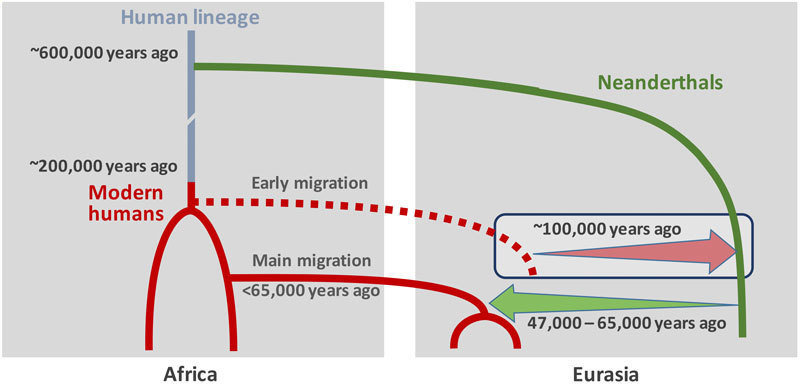Neandertal progesterone receptor has a favourable effect on fertility
One in three women in Europe inherited the receptor for progesterone from Neandertals – a gene variant associated with increased fertility, fewer bleedings during early pregnancy and fewer miscarriages. This is according to a study published by researchers at the Max Planck Institute for Evolutionary Anthropology in Germany and the Karolinska Institutet in Sweden.

“The progesterone receptor is an example of how favourable genetic variants that were introduced into modern humans by mixing with Neandertals can have effects in people living today,” says Hugo Zeberg, researcher at the Max Planck Institute for Evolutionary Anthropology and the Karolinska Institutet, who performed the study with colleagues Janet Kelso and Svante Pääbo.
Progesterone is a hormone, which plays an important role in the menstrual cycle and in pregnancy. Analyses of biobank data from more than 450,000 participants – among them 244,000 women – show that almost one in three women in Europe have inherited the progesterone receptor from Neandertals. 29 percent carry one copy of the Neandertal receptor and three percent have two copies. “The proportion of women who inherited this gene is about ten times greater than for most Neandertal gene variants,” says Hugo Zeberg. “These findings suggest that the Neandertal variant of the receptor has a favourable effect on fertility.”
The study shows that women who carry the Neandertal variant of the receptor tend to have fewer bleedings during early pregnancy, fewer miscarriages, and give birth to more children. Molecular analyses revealed that these women produce more progesterone receptors in their cells, which may lead to increased sensitivity to progesterone and protection against early miscarriages and bleeding.
KI/HZ, SP






